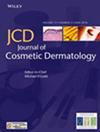A Rare Case of Delayed-Onset Hypersensitivity Reaction and Complete Secondary Treatment Failure Following Repeated Cosmetic Botulinum Toxin Type A Injections
Abstract
Background
Cosmetic botulinum toxin type A (BTX-A) injections have been widely used for improving facial aesthetics. Although the procedure is generally safe, immune-mediated adverse events, such as hypersensitivity reactions and secondary treatment failures, may rarely occur. We report the first case in which repeated BTX-A injections resulted in both a delayed-onset cutaneous hypersensitivity reaction and complete secondary treatment failure.
Case Report/Methods
A 42-year-old female, with a history of successful BTX-A treatments for glabellar lines and masseter hypertrophy, experienced diminished efficacy following a treatment session. Ten hours after a touch-up injection, she developed facial swelling and edematous erythema localized to the injection sites. These manifestations persisted for over one month without any observable aesthetic improvement, indicating complete secondary treatment failure. The therapeutic effect was not restored even after switching to an alternative BTX-A formulation. We hypothesize that the patient's local hypersensitivity reaction represents a type III immune complex-mediated response (Arthus reaction) driven by IgG antibodies. The repeated BTX-A injections may have induced neutralizing IgG antibodies that, in concert with the cutaneous hypersensitivity reaction, contributed synergistically to both the cutaneous reaction and the complete treatment failure. The short interval between the injections may have facilitated these immunologic events.
Conclusion
This case underscores the importance for clinicians to remain vigilant regarding the potential for delayed-onset cutaneous allergic reactions and complete secondary treatment failure following repeated BTX-A injections.


 求助内容:
求助内容: 应助结果提醒方式:
应助结果提醒方式:


